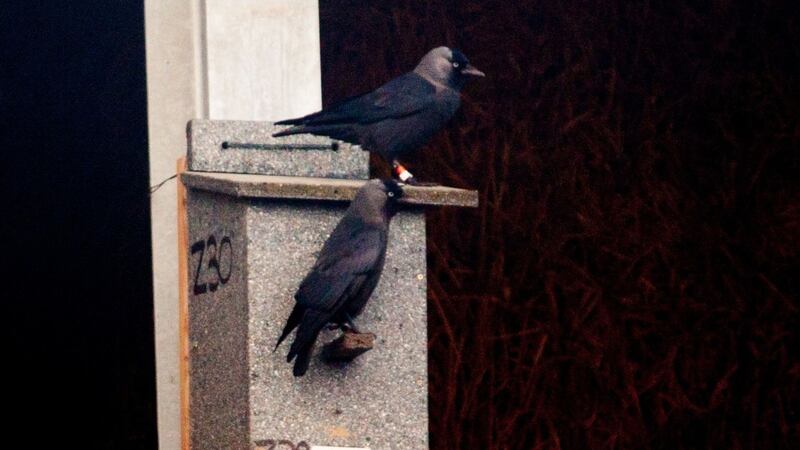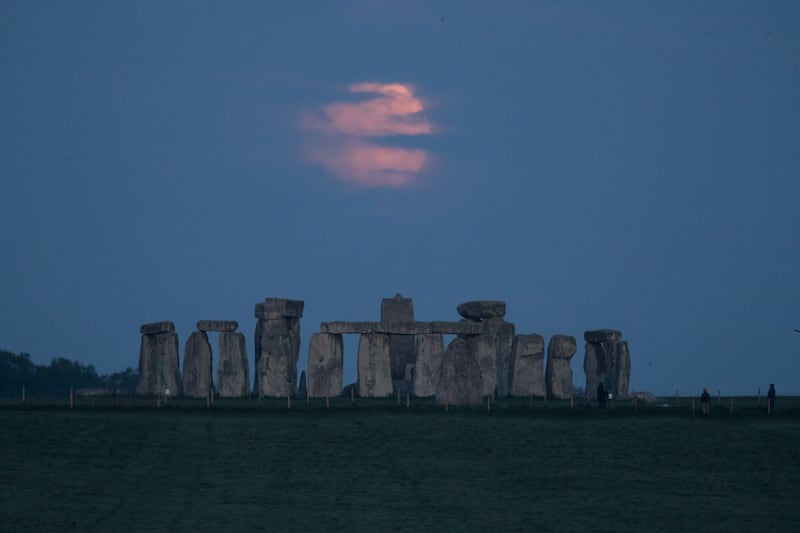Jackdaws are able to discriminate between each other’s voices and respond in greater numbers to warnings from birds they know than from strangers, researchers have shown.
Scientists from the University of Exeter discovered the birds have unique calls and are more likely to respond to members of their own colony.
Jackdaws, a highly social member of the crow family, produce a harsh scolding call when they see a threat, calling fellow jackdaws to mob the intruder.
It was found the largest mobs assembled when birds heard the cry of a member of their own colony.
Dr Alex Thornton, from the Centre for Ecology and Conservation on the university’s Penryn Campus in Cornwall, said: “Joining a mobbing event can be dangerous, as it involves approaching a predator, so it makes sense for individuals to be selective in whom they join.
“Our results show that jackdaws use the ability to discriminate between each other’s voices when deciding whether to join in potentially risky collective activities.”
The scientists used playback experiments on three wild nest-box colonies of jackdaws near Penryn to find out whether collective responses to anti-predator recruitment calls were dependent on the identity of the caller.

The experiment was carried out during the breeding season and calls from a resident of each nest box were played along with another member of the same colony, a member of a different colony and a rook.
They found the birds – which breed colonially, live in structured groups with a defined hierarchy and form long-term monogamous pair bonds – were most likely to respond to a warning from a bird from the resident nest-box owner, followed in turn by other colony members, non-colony members and rooks.
Dr Thornton added: “We also found a positive feedback loop – if birds joining a mob made alarm calls of their own, this in turn caused more birds to join in, magnifying the size of the mob.”
Responses were also influenced by caller sex, with jackdaws less likely to echo a warning if the caller was a female stranger from a different colony.
The research was carried out as part of the Cornish Jackdaw Project, a long-term study of jackdaw behaviour and cognition in sites across Cornwall.
The paper, Caller Characteristics Influence Recruitment To Collective Anti-predator Events In Jackdaws, is published in the journal Scientific Reports.








